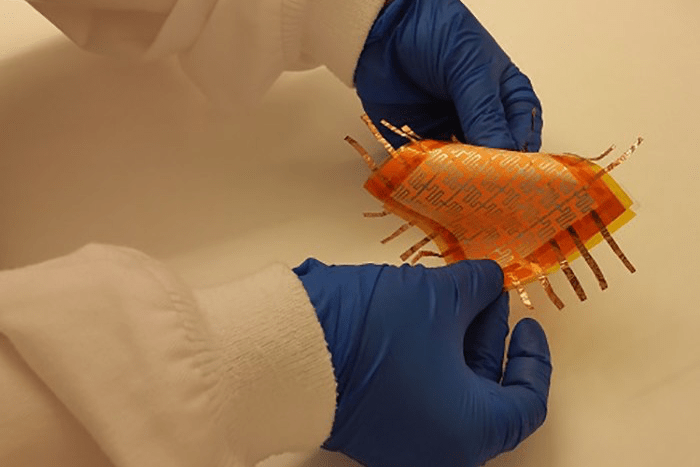
The innovative material is made from common kitchen items including aluminum foil, sticky note paper, sponges, and tape. The materials were assembled into an artificial skin platform that can respond to external stimuli such as humidity, temperature changes, and even the presence of a finger. The system is based on electrical conductance, detecting the changes in electrical conductivity produced by these external stimuli. To detect these changes, the skin is connected to a device capable of measuring voltage, resistance and capacitance. As arranged, this system could detect multiple stimuli simultaneously in real time.
Related: Artificial skin could one day provide a sense of touch
The team used both individual and combined elements to mimic skin function, For example, the sticky note was used to detect humidity while the sponge was used to monitor changes in pressure. Multiple elements such as lead pencil on paper and conductive silver ink on aluminum foil could be used to measure more complex stimuli such as acidity levels, or temperature fluctuations.
The KAUST researchers hope to improve the artificial skin platform so it can be used as a medical device to monitor vital signs such as ‘heart rate, blood pressure, breathing patterns, and movement,” said Muhammad Mustafa Hussain of KAUST’s Integrated Nanotechnology Lab. Before the system can be used in a clinical setting, the team has to conduct extensive testing to determine the long-term reliability of the system. It also has to measure the paper’s ability to bend and adhere to a patient’s skin. In addition, the researchers will need to develop a wireless system so the paper can be used in a standalone mode without requiring a direct connection to a machine.
According to the KAUST researchers, their artificial skin is highly affordable, and performs as well as more expensive versions also under development. “This work has the potential to revolutionize the electronics industry and opens the door to commercializing affordable high-performance sensing devices,” said Hussain.



